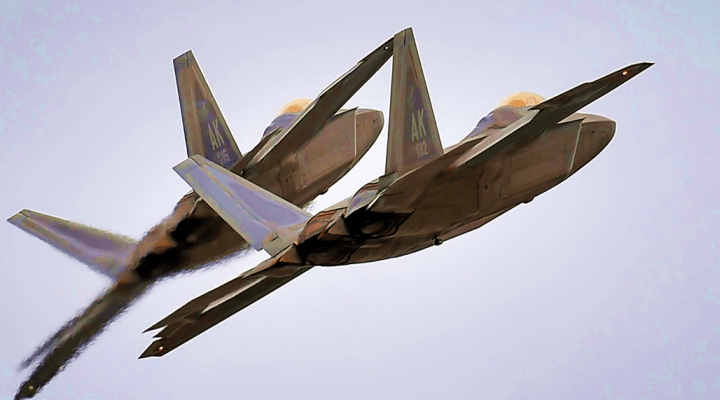Defense contractor Honeywell International, has reached an administrative settlement with the United States Department of State for violating the Arms Export Control Act (AECA) and the International Traffic in Arms Regulations (ITAR) which addresses the unauthorized exports and retransfers of ITAR controlled data and “finished parts for multiple aircraft, gas turbine engines, and military electronics to and/or within Canada, Ireland, Mexico, the People’s Republic of China and Taiwan.” All told, the charging letter itemized 34 separate charges. To their credit, the charges stem from two separate voluntary disclosures submitted by Honeywell of their violations.
Honeywell will pay a civil penalty of $13 million, of which $5 million will be suspended by the Department of State if these funds are used for the consent agreement implementation at Honeywell. In addition to the fines, Honeywell will now be subjected to close and continuing government oversight for the next three years. In addition, Honeywell will designate a “Special Compliance Officer” whose role will be to assure that the 17-page consent agreement is adhered to.
The Honeywell Violations
From July 2011 through October 2015 Honeywell identified 71 ITAR controlled drawings which were sent to Taiwan, China, Canada and Ireland, of which 65 were included in the Department’s complaint. The drawings were controlled for good reason, they included minutia on several military aircraft and weapons systems which included:
- F-35 Joint Strike Fighter,
- B-1B Lancer Long-Range Strategic Bomber,
- F-22 Fighter Aircraft,
- C-130 Military Transport Aircraft,
- A-7H Corsair Aircraft,
- A-10 Aircraft,
- Apache Longbow Helicopter,
- M1A1 Abrams Tank,
- Tactical Tomahawk Missile, and
- T55 Turboshaft Engine
Of these Honeywell confirmed that 51 of the 71 drawings were sent to suppliers in China; 20 of the 71 drawings to Honeywell subsidiaries in China; and 16 of the 71 to “unaffiliated suppliers” in China.
Then in October 2018, Honeywell, once again disclosed that their internal controls failed and that a series of ITAR violations, remarkably similar to that which was previously disclosed – technical drawings – made their way to Mexico, Canada and the PRC. Again, several military aircraft and/or parts were inappropriately revealed to foreign entities, which included:
- F-35 Joint Strike Fighter,
- F/A-18 Hornet,
- F135 turboshaft engine,
- F414 turboshaft engine,
- T55 turboshaft engine, and
- CTS800 turboshaft engine.
The kicker?
Following their first voluntary disclosure, Honeywell, had put in place controls to assure that the events of 2018 would not occur, yet they did, as the controls apparently were not followed.
Not the first multinational to violate ITAR and AECA
Few will forget how in 2007 ITT was socked with a $100 million penalty for the illegal export of night vision technologies. ITT discovered the inappropriate export internally and failed to self-report the incident(s) of sharing the ITAR and AECA controlled information to the UK, Singapore, and China.
Nor will we forget the Raytheon Missile Systems engineer, Wei Sun, who was arrested and pleaded guilty to purposefully carrying ITAR-controlled information to China in violation of the AECA. Sun was sentenced to 38 months in prison for his violations.
Lessons learned
As noted, Honeywell did the right thing and self-reported. The trust model requires all to self-report violations of information handlings processes and procedures, even if they may not place us in the most positive light. In this instance, the violations occurred because of failure to “exercise appropriate internal controls.” ITT and Sun opted not to self report and as a result the adjudication of their violations resulted in markedly greater fines or a prison sentence.
Honeywell also attempted to downplay the disclosures by noting that the information disclosed was already commercially available. When it comes to ITAR, however, the regulations are specific, stringent, and not dependent on whether or not the information is commercially available. Much like classification guidelines (even if something has been leaked or even confirmed by the government doesn’t mean it’s free for a clearance holder to disclose), ITAR protects information that may, in fact, already be available in other forms.
China’s ability to acquire information about classified U.S. aviation systems is significant, and it has successfully obtained extensive information about the F-35 and F-22, among other aircraft. The extensiveness of the plans obtained by Honeywell demonstrate how the PRC – and other countries across the globe – continue to seek out U.S. industrial and national security information. Economic espionage is a key PRC play. It’s one thing when they pilfer the plans through espionage – it’s another thing when we send them the information directly.




